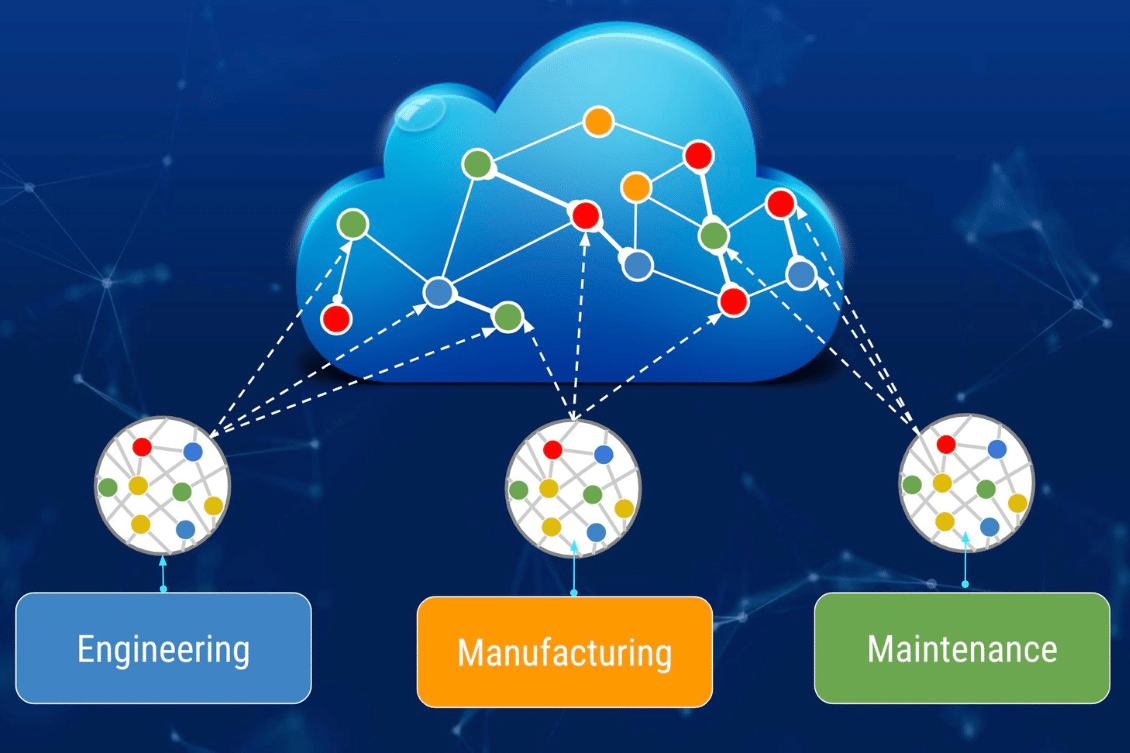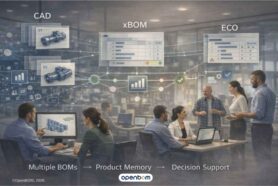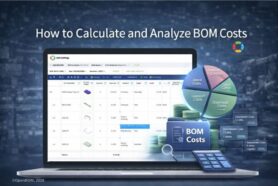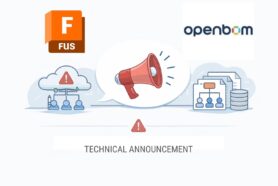
I’m slowly digesting everything I learned over the last few days attending Autodesk DevCon 2023 in San Francisco. For two days Autodesk Platform Servies (APS) Team shared their strategy about how to switch from file-oriented workflows to data-driven workflows.
OpenBOM is partnering with Autodesk and we are an early adopter of Autodesk Platform Services technologies and Data APIs. It allowed OpenBOM to build a new type of innovative integration with Autodesk products leveraging modern GraphQL APIs and accessing data in seamless ways. Read more about our announcement here to introduce new APS-based integrations
From File-Based to Granular Data
Here are a few slides I captured that demonstrate the way Autodesk lays its foundation for new data management architecture. The main reasoning goes to the point of CAD data being very inefficient and hard to communicate between people and applications.
Therefore Autodesk took a goal to “disassemble” CAD files into small pieces of information (granular data) to allow different applications and users to only access what is needed.
The final part of this is the data, hosted in the cloud and accessed via APIs allowing it to retrieve information in the way it makes sense to business logic of applications (instead of dealing with CAD files).
Such a way to access design data simplifies the process of information access and exchange, which is finding its way into OpenBOM solutions using Autodesk (APS) technology.
In the coming release, OpenBOM will allow the extraction of data from Autodesk Fusion360 using a web-based application function available directly from the new OpenBOM Design Dashboard. Key difference – no need to install add-ins. All information is seamlessly integrated and available in the browser.
However, this is just the beginning of the process.
Design-To-Make: New Product Development Process
At the core of the OpenBOM business, we focus on how to accelerate the product development process and new Autodesk CAD integrations play a very important process in streamlining data exchange. However, this is just the beginning of the new product development process. The value of data extraction is big, but the next steps are also important.
OpenBOM New Product Development solution (which you can easily characterize as ‘design to make’) includes four steps – (1) Design; (2) BOM; (3) Purchasing; (4) Assembly.
At OpenBOM, we recognized a substantial inefficiency in managing this process using Excel and Email and suggested establishing an agile process of setting up data that can be used by everyone to collaborate and move the process forward.
The foundation of this process is data objects that represent different stages of the process hold information and share it seamlessly with the rest of the team. In such a way, data seamlessly captured from the CAD system using Autodesk Data API is getting absorbed into the BOM object, later to Order (Purchase), and materializing into Assembly (eg. Maintenance BOM object), connected together.
A very important differentiator of the OpenBOM solution is establishing data connectivity between different team members and organizations allowing sharing of data using granular graph views and the ability to keep the organization (including contractors and suppliers) on the same stage (hm.. BOM).
The important element of the process is the ability of OpenBOM to establish business objects with the right granular data sets that can be used alongside the new product development process. These objects (BOMs and Orders) represent the process and the needs (e.g…. list of components, vendor information, cost, suppliers). The organization of these objects is a super important instrument in allowing customers to work with the granular data.
In the screenshot below, you can see data objects representing Production Order with procurement information. The key advantage of OpenBOM is flexibility in the process of creation of these objects. So, the data extracted using Autodesk Data API is seamlessly integrated with other data needed to run the process.
Conclusion:
Granular data organization is important to improve efficiency and to organize decision support during the new product development process. Autodesk (APS) Data APIs play an important role in the organization of this seamless process.
A second part of this solution is to organize customizable business objects allowing them to hold data, collaborate with people, and organize the process. Data granularity is a key element alongside the ability of OpenBOM to merge different business objects and make them available for decision and purchasing support.
REGISTER FOR FREE and start a 14-day trial to evaluate how OpenBOM can help you.
Best, Oleg
Join our newsletter to receive a weekly portion of news, articles, and tips about OpenBOM and our community.










